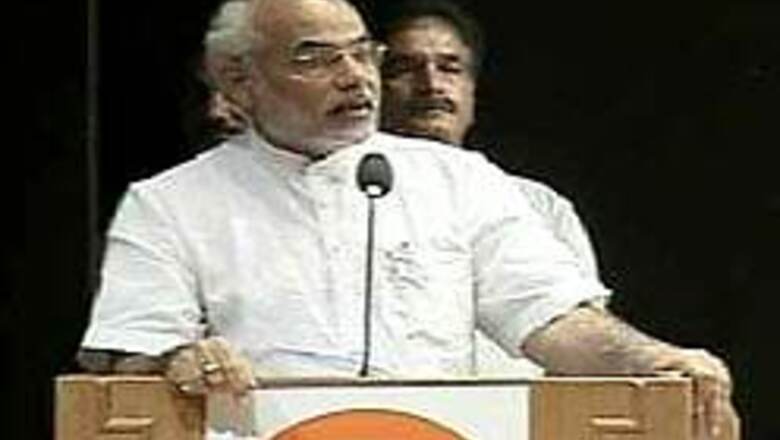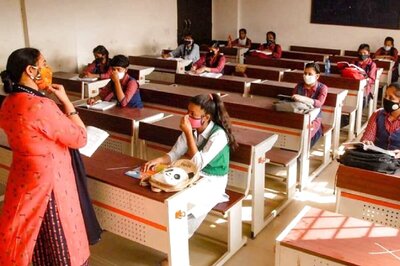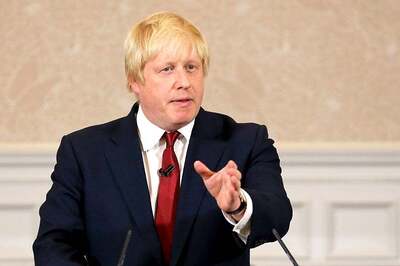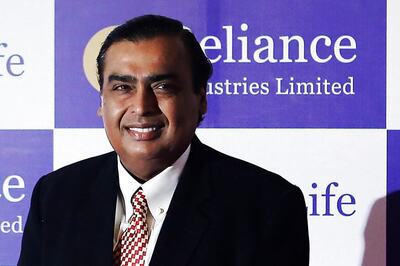
views
New Delhi: Prima facie, Narendra Modi can be said to have pulled off a famous victory in Gujarat. Apart from trouncing the Congress party, he has also defeated the detractors in his own party, including those in the supposedly all-powerful Sangh Parivar, as well as a patently hostile liberal English media, which has habitually painted him in the darkest of hues, especially after the 2002 anti-Muslim riots.
Notwithstanding the slight, almost inconsequential, drop in the number of seats, the chief minister has had little difficulty in powering his party to a comfortable win, which will make him the master of all he surveys for the next five years.
The million-dollar question, however, is whether this remarkable performance will enable him to emerge as a national leader. Several imponderables dog this query.
One is that despite his success, Modi's image continues to be that of a hard-line anti-Muslim leader. It is a baggage that he will not find easy to shed although he tried to do so by turning the focus away in Gujarat from the riots to development.
Although there is little doubt that his victory is explained to a large extent by the progress which the state made in the last five years in both the industrial and agricultural sectors, Modi's image did not change - and not only because the BJP did not field a single Muslim candidate in the elections.
What is more, his reputation as a minority-baiter was strengthened by his laudatory reference to the killing in a 'fake encounter' (staged police killing) of a criminal, Sohrabuddin Sheikh, which drew loud cheers at election rallies. What gave the game away, however, was that Modi never referred in this context to the death in similar circumstances of Sohrabuddin's Hindu accomplice, Tulsiram Prajapati, presumably because he did not want to dilute his anti-minority diatribe.
It is this factor that will continue to haunt him despite his victory. It will be interesting to see, therefore, how enthusiastically the BJP will embrace him at the national level. Will it, for instance, readmit him in the party's parliamentary board from which he was ousted, apparently at the behest of the Rashtriya Swayamsevak Sangh (RSS), the ideological pole of the Hindu nationalisst Sangh Parivar? And will the BJP's allies like Nitish Kumar, the Bihar chief minister, now invite Modi to campaign for them, which they have been unwilling to do so far?
The reluctance of the allies to embrace Modi too closely will be discomfiting for the BJP's 'shadow' prime minister, L.K. Advani, for it will undermine the chances of the National Democratic Alliance (NDA) led by the party to secure a parliamentary majority in the next general election.
Nor is Modi's victory expected to persuade the US to grant him a visa even if the chief minister's admirers in the Gujarati community in that country press their government to do so. The irony is obvious. Here is a man, who follows the American market-friendly model without hesitation. And, yet, he remains a persona non grata in the home of capitalism.
The reason for this oddity is that capitalism prefers a liberal, tension-free society - not one where fear reigns supreme among the minorities, as is the case with the Muslims and the Christians in Gujarat (Muslims constitute 12 percent of the state's 55 million population). Such fear inhibits the free play of markets and is, therefore, bad for business.
This is the contradiction Modi will have to face in the coming days. His success may convince both him and his party that he has arrived on the political scene, ready to play a larger role since he is no longer the pariah that he was. But that may not be the whole truth.
First and foremost, the BJP itself will watch the chief minister more closely than his political adversaries to find out whether the victory will boost his arrogance - his besetting sin which earned the disapproval of his party men - or make him more amenable.
Secondly, the party (and the country) will ascertain the impact on the minorities. Will they continue their fearful ghettoized existence or will they regain their rightful place as citizens of the state?
On either count, the jury is still out. But the BJP's future depends on positive answers to these questions because the party is currently in a process of transition from GenPast to GenNext.
Although Advani is the prime ministerial candidate, it is obvious that at 80 years of age, he does not represent the future. It is Modi, 57, and others of his generation who do so. And while Modi's agenda of development will give them a boost, his anti-minority image will be a major handicap at the national level.
Unless this barrier, which is linked to the party's and the Parivar's weltanschauung is overcome, Modi's victory will not mean much at the national level.
Amulya Ganguli is a political analyst. He can be reached at [email protected]




















Comments
0 comment